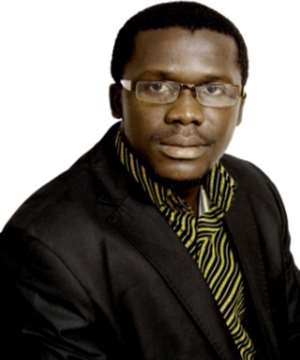
It is becoming very common of using the phrase “I am an Entrepreneur” in all age groups in Ghana now with a common complain of poor macroeconomic environment denying them the success of their venture.
This paper seek to direct aspiring, existing student of entrepreneurship practice and it funding partners in line with the main traditional concept that define the school of thought of entrepreneurship practice to distinguish it from the modern ideology and perspective adopted to discredit the classical spirit of entrepreneurship due to its massive fellowship in 21st Century and also bases to mislead the future generation aspiring to join such faculty.
The history leading to the coining of the word “Entrepreneur” if properly understood could guide it student in this faculty to align themselves scientifically for the successful performance of their venture. Such word was first used in 1723, today the term Entrepreneur implies quality of leadership, initiative and innovation in business. Economist Robert Reich has called team building, leadership and management ability essential qualities for Entrepreneur. Entrepreneur is a factor in microeconomics and the study of entrepreneurship reaches back to the work in the late 17th and early 18th centuries of Richard Cantillon and Adam Smith which was the foundational to classical economics.
Richard Cantillon considered the entrepreneur to be a “risk taker” who deliberately allocates resource to exploit opportunities in order to maximize the financial return. The term Entrepreneur was coined by French Economist Jean- Baptiste Say but the Irish French Economist Richard Cantillon defind it first time in his Essay title “ THE NATURE OF TRADE GENERAL”.While Cantillon saw Entrepreneur as a “Risk- taker” Baptiste Say considered Entrepreneur as a “Planner”.
Joseph Schumpeter describe Entrepreneur to be an Individual willing and able to convert a new idea or invention into successful innovation. He employ what Schumpeter called “GALE OF CREATIVE DESTRUCTION” to replace in whole or in part inferior offering across markets and industries, simultaneously creating new products and new business models. Thus “CREATIVE DESTRUCTIVE” is largely responsible for long-term economic growth.
For Schumpeter, Entrepreneur did not bear the risk the capitalist do.
Schumpeter believed that the Equilibrium Ideal was imperfect by demonstrating that changing environment continuously provides new information about the optimum allocation of resources to enhance profitability which some individual acquire the new information before others to recombine the resource to gain an Entrepreneurial profit.
He was of the Opinion that Entrepreneur shift the “Production Possibility Curve” ( It is a graph that shows the various combination of amounts of two commodities that could be produced using the same fixed total amount of each of the factors of product) to higher level using innovations.
Peter Drucker defined Entrepreneurship in taking risk, willing to put his or her career and financial security on the line and take risks in the name of idea, spending time as well as capital on uncertain venture.
While Uncertainty was classified into 3 categories
1. Risk Which is measurable Statistically
2. Ambiguity which is hard to measure statistically
3. True Uncertainty which is impossible to estimate or predict statistically
So to pursue Entrepreneurship with the purpose of Conspicuous Consumption (Spending money and acquiring luxury goods and service to publicly display economic power) is a misleading concept as a form of trend growing among the aspiring student of this faculty in Ghana and Africa as a whole, such attitude contribute to the factor of making the financial industry viewing small scale enterprise with majority managed by the Youth as more risk to invest due to the materialistic pursuit of the emerging youth who are the future backbone of the global economy.
Tweneboah Senzu, PhD.
Managing Director
Bastiat Ghana




 2024 elections: Resign if you can't be faithful to party - Sagnarigu NDC PC desc...
2024 elections: Resign if you can't be faithful to party - Sagnarigu NDC PC desc...
 Five arrested, remanded over alleged murder of two police officers at Transacco
Five arrested, remanded over alleged murder of two police officers at Transacco
 Tax exemptions better than incentives for churches – Tax Analyst tell Bawumia
Tax exemptions better than incentives for churches – Tax Analyst tell Bawumia
 Transport Minister sues Law Platform Editor for defamation
Transport Minister sues Law Platform Editor for defamation
 Voter registration: Police arrest NPP Treasurer for Mpohor for registering minor
Voter registration: Police arrest NPP Treasurer for Mpohor for registering minor
 "This nonsense must stop" — Lawrence Tetteh vows to march to Jubilee House over ...
"This nonsense must stop" — Lawrence Tetteh vows to march to Jubilee House over ...
 2024 elections: “If indeed you stand for peaceful elections the time is now for ...
2024 elections: “If indeed you stand for peaceful elections the time is now for ...
 I have the attributes to be president of this country — Bernard Monarh
I have the attributes to be president of this country — Bernard Monarh
 Cecilia Dapaah saga: ‘Turf war’ between AG, EOCO, OSP indicates they’re not ‘cor...
Cecilia Dapaah saga: ‘Turf war’ between AG, EOCO, OSP indicates they’re not ‘cor...
 Ghana will become the first African country to embrace blockchain-powered gover...
Ghana will become the first African country to embrace blockchain-powered gover...
